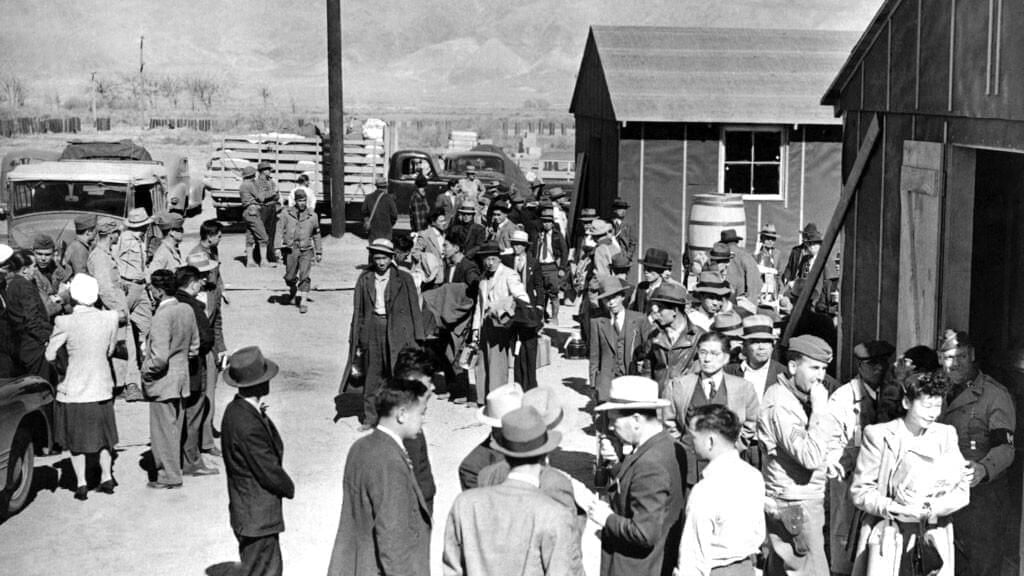Reckoning with the internment of Japanese-Americans During World War II

This March 23, 1942, photo shows the first arrivals at the Japanese evacuee community established in Owens Valley in Manzanar, Calif.
After decades of silence, Japanese-Americans who had been imprisoned during World War II, and their descendants, spoke up in the Redress Movement of the 1980s, and it's been seen as a model for other communities seeking justice and healing today for wrongs committed by the US government. Japanese-Americans who relocated to the Midwest played a big part in getting justice so many years later, and a new online multimedia exhibit explores their experiences. It’s called ‘Reckoning.’ This project is part of a collaborative grant initiative undertaken by the Japanese-American Service Committee and the Chicago Japanese-American Historical Society. We were joined by the project's creator, the president of the Chicago chapter of the Japanese-American Citizen's League, and the Japanese-American Service Committee's Legacy Center Director.
GUESTS:
Lisa Doi
President of the Chicago chapter of the Japanese American Citizen's League | PhD student in American Studies at Indiana University
Katherine (Kat) Nagasawa
Writer and Producer of Reckoning
Emma Saito Lincoln
Legacy Center Director, JASC (Japanese American Service Committee)
In the 1980s, Japanese Americans successfully fought for reparations for their World War II incarceration. What lessons does their story hold for communities seeking justice and healing today? I spent the past few months trying to answer that question. https://t.co/C69LQhjbHH
— Katherine Nagasawa (@Kat_Nagasawa) September 23, 2021
Prepared for web by Owen Henderson
Help shape our coverage on The 21st by joining our texting group and answering weekly questions. To join, text “TALK” to 217-803-0730 or sign up with your phone number below:

